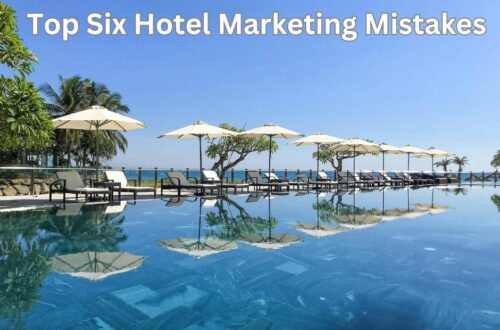
Top 5 Hotel Website Mistakes to Avoid in 2022
I do a lot of research and planning for the various trips I take. As someone who works in the hospitality industry, I always prefer to book directly. This means I visit quite a few hotel websites, usually via Google or through their social media pages.
Admittedly, my recent travel has been a lot more domestic and regional due to the pandemic.
As per my observation, these are the top five mistakes that hotel websites are still making in 2022.
1) Missing a Call to Action:
So you've taken some lovely photos and videos of your property. You want the best shots to captivate your visitors. They are absolutely amazed. What next?
According to studies, the majority of Internet users are in a trance-like state. They require direction. If you don't have a booking mask/button, enquiry form, chat, or information link or button in appropriate places, you've lost them.
A simple solution is an easily accessible booking mask or button. Other actions, depending on the main purpose of a web page or section, can be sprinkled in.
2) No Search Function:
The majority of guests visit a hotel's website to learn more about the hotel's services and facilities. This is a fantastic opportunity for hotels to start making the case for direct booking.
Some guests are so used to search engines and how easily they can land on the information they seek that they have little patience for navigating websites.
Even if it's powered by Google, a search function on your website will make it easier for people to find the information they want.
A large majority of hotel websites lack a search function.
3) Site not Optimized for Mobile:
Mobile-first has been a buzzword for more than a decade, but most hotels do not understand what this means for their website. The content needs to be shortened significantly for mobile, not just put in the responsive format.
In my experience, more users conduct their research on smartphones. They then complete their reservation on a desktop computer.
This is gradually changing, and we know that many of our guests no longer own a desktop computer. So, the mobile website needs to be optimized for both guests who want information and those who want to book.
4) No SSL:
SSL certificates indicate secure data transmission between a visitor's device and website servers. I still see many hotel websites that do not use SSL certificates. What will your visitors think if the dreaded 'Not Secure' label appears in the URL bar?
If you're still unsure, here's why this is no longer optional.
5) Lack of a Traffic Strategy:
People have told me that they only require a hotel website. They don't see any reason to market it.
Whether you want to bring people to your site through SEO, SEM, display ads, social media, programmatic, or some other method, the profiles of your visitors will have a big impact on the content, style, and design of your site.
The adage "Build it and they will come" is not applicable here. If you have a website, you'll need a traffic strategy, which can be organic or paid, and it will take time to put in place.
How you get people to visit your website has a huge effect on the content and conversion strategies you use. Many hotel websites are just a jumble of text and images, with little thought given to traffic generation or the purpose of individual pages.
What mistakes have you noticed on hotel websites?



